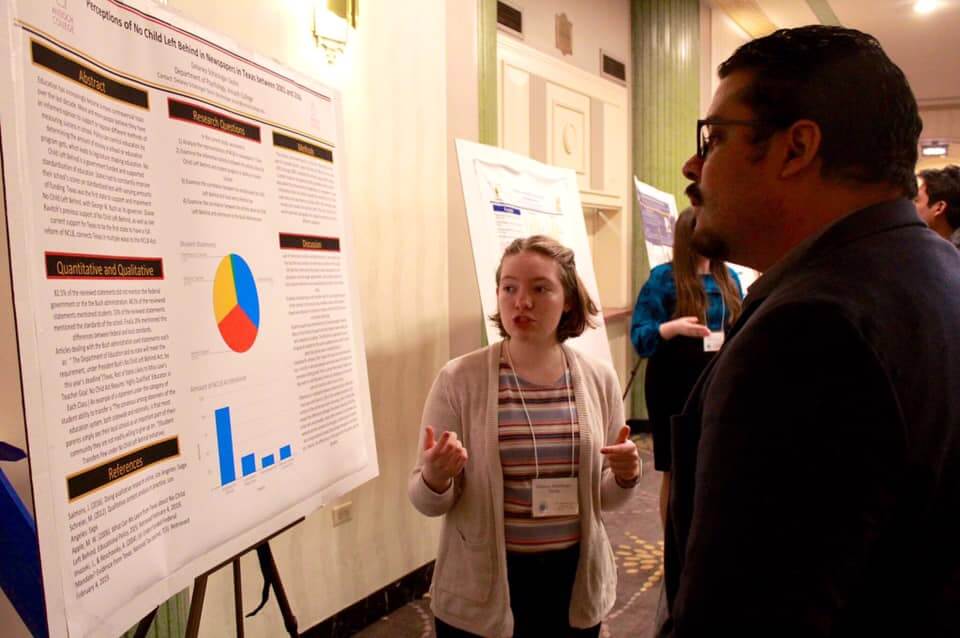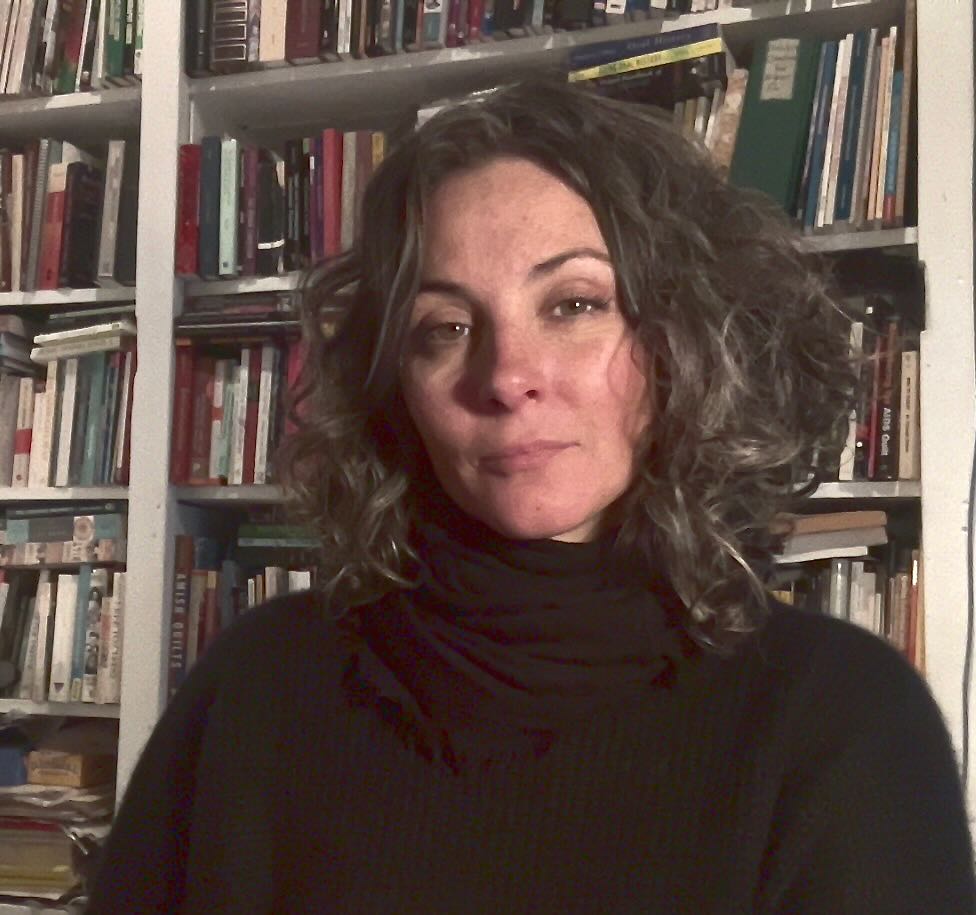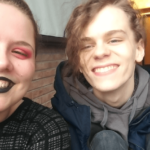Psychology
Students work with faculty advisors to devise self-designed majors. Coursework in the major builds upon students’ experiences in the general education curriculum while providing students with pathways to deepen their knowledge or further develop their passion in a particular area of study.
Why study psychology at Antioch?

Delaney Schlesinger-Devlin ’22 presenting her research poster titled, “Perceptions of No Child Left Behind in Newspapers in Texas between 2001 and 2006,” at the 111th Annual Meeting of the Southern Society for Philosophy and Psychology in March 2019.
Psychology investigates the historical and ongoing dynamics in individuals, families, groups, culture, context, interiority, transformation, dialogue, symptoms, pathology, and healing. It honors the full scope of lived experiences and the myriad ways in which we act, think, and feel. Psychology-in-practice aspires to increase mental well being and alleviate distress and suffering. Students of psychology have the opportunity to develop basic therapeutic skills, a critical understanding of contemporary Western psychology, and a deeper awareness of “self” as a citizen of the global community.
Recommended for students developing self-designed majors in psychology
Highly Recommended
- PSYC 105 General Psychology
- PSYC 110 Foundations of Social Psychology
- PSYC 225 Developmental Psychology
- PSYC 230 Personality Theories
- PSYC 310 Biopsychology
- PSYC 335 Abnormal Psychology
- MATH 105 Introduction to Statistics
- MATH 205 Intermediate Statistics
Required of all Students
- Research Methods (at least one course)
- CAP 394 Capstone Preparation
- CAP 495 Capstone Project
- CAP 490 Capstone Development
Additional Options
- PSYC 200 Basic Therapeutic Skills
- PSYC 205 Learning and Behavior
- PSYC 220 Animal Behavior
- PSYC 242 Cognitive Psychology
- PSYC 330 Cross-Cultural Psychology
- PSYC 420 Political and Ethical Issues in Psychology
- PSYC 370/395 Special Topics in Social Psychology
Examples of Special Topics Courses
- PSYC 370: The Social and Psychological Study of Autobiographical Documents
- PSYC 395: A Critical History of Psychology
- PSYC 395: : The Psychology of Empathy
Cooperative Education Field Placements
Antioch College students complete periods of full-time, compensated work nationally and internationally as part of the Cooperative Education program. Here are a few examples:
- Para-educator at Crotched Mountain, a school that empowers children who have disabilities.
- Foreign service intern at the U.S. Department of State, the federal government’s executive department responsible for U.S. foreign policy and official diplomatic relations with other countries.
- Shadowing physical therapists at Kettering Health Network
- Legal intern at Refugee and Immigrant Center for Education and Legal Services (RAICES), a Houston-based non-profit that provides legal services to immigrants and refugees.
Faculty
No team member found
Students with self-designed majors in psychology should also expect to take courses in ethics and statistics.
Recent News
NOW WE CAN DO, BECAUSE WE ARE HERE: An interview with Rayy Graham ‘23
Interview by Matt Walker ‘04 MW: “So anyway, why don't you tell me about yourself? Tell me what your name is, where you're from…” RG: “I'm Rayy. Rayy Graham. I’m a Third Year, Class of 23. I’m from Brooklyn, New York. I came here initially because it's college....
The Return of Steve McQueen
Jewel Graham Oral History Interview with Professor McGruder
Student-led Newspaper ‘The Record’ Makes a Comeback!
Student-run newspaper ‘The Record’ has been reestablished by S. Quinn Ritzhaupt ’23 and Jacob Philip ’23 who aim to publish in June.





